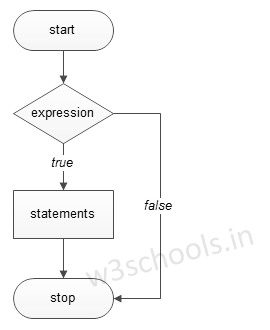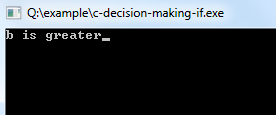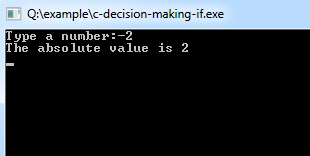In C, "if statements" control the program flow based on a condition; it executes some statement code block when the expression evaluates to true; otherwise, it will get skipped. It is the simplest way to modify the control flow of the program.
The if Statement in C can be used in various forms depending on the situation and complexity.
There are four different types of if statements in C. These are:
- Simple if Statement
- if-else Statement
- Nested if-else Statement
- else-if Ladder
The basic format of the if Statement is:
Syntax:
if(test_expression)
{
statement 1;
statement 2;
...
}
'Statement n' can be a statement or a set of statements, and if the test expression is evaluated to true, the statement block will get executed, or it will get skipped.
Figure - Flowchart of if Statement:

Example of a C Program to Demonstrate if Statement
Example:
#include<stdio.h>
void main()
{
int a = 15, b = 20;
if (b > a) {
printf("b is greater");
}
}Program Output:

Example:
#include<stdio.h>
void main()
{
int number;
printf("Type a number:");
scanf("%d", &number);
if (number < 0) { // check whether the number is negative number.
number = -number; // If it is a negative then convert it into positive.
printf("The absolute value is %d\n", number);
}
} Program Output:
